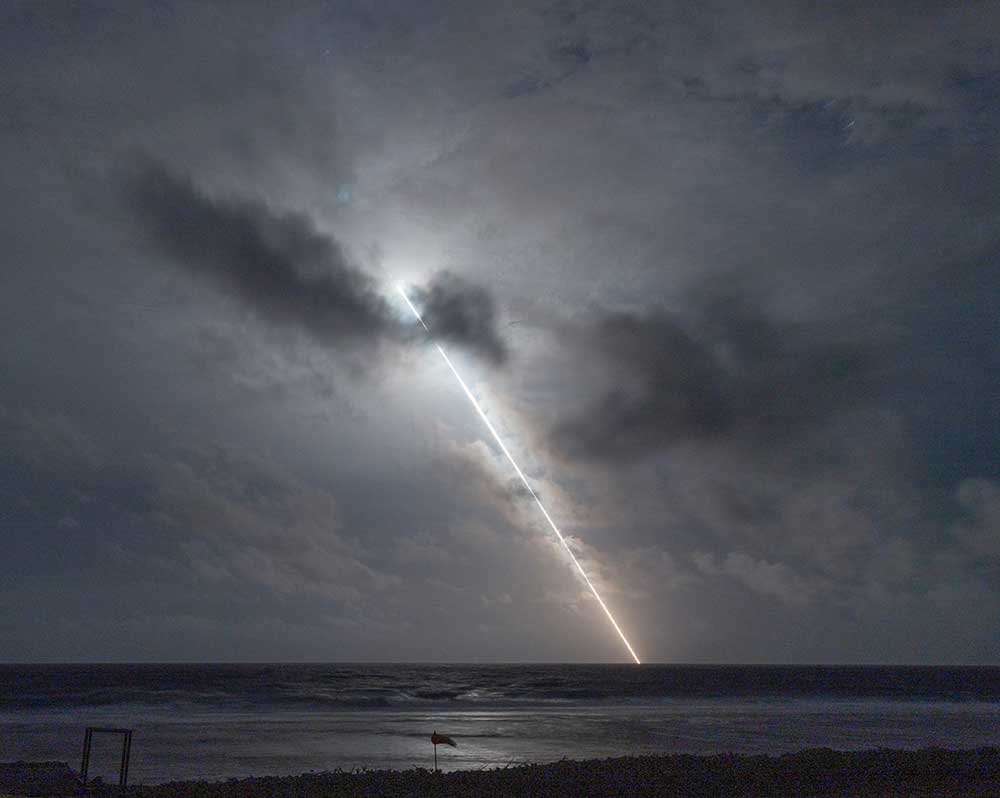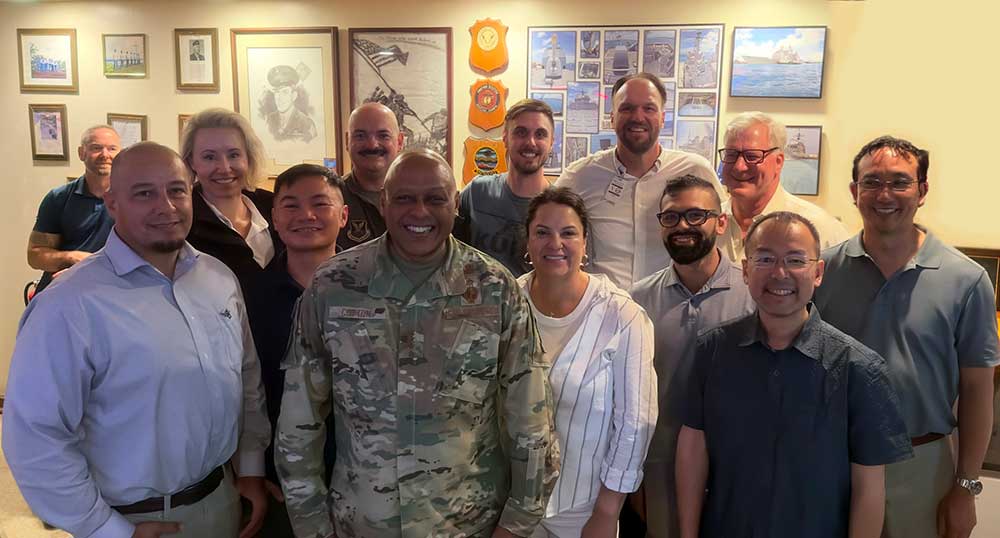LAUNCH TIME — A U.S. Air Force Minuteman III missile carrying an Mk21 Fuze flight test unit onboard a joint test assembly reentry vehicle was launched from Vandenberg Space Force Base in Santa Barbara County, California, on June 4. This was the final test to demonstrate that the Mk21 Fuze is ready to be moved to the U.S. nuclear stockpile. (Photo by Olga Houtsma, USAF)
At 12:56 a.m. on June 4, the sky over Vandenberg Space Force Base in Santa Barbara County, California, lit up momentarily as a Minuteman III missile was launched carrying a Flight Test Unit 4 Reentry Vehicle consisting of two new Sandia-designed components: a modernized Mk21 Fuze and a Joint Test Assembly 4a.
The test launch was the last in a series of planned activities designed to demonstrate the operational effectiveness of the Mk21 Fuze, providing proof to the U.S. Air Force that it is ready to be accepted into the U.S. nuclear stockpile.
The reentry vehicle reached its target — the Ronald Reagan Ballistic Missile Defense Test Site at Kwajalein Atoll, part of the Republic of the Marshall Islands in the central Pacific Ocean — where its splash point was evaluated via the Kwajalein Missile Impact Scoring System.
The team is conducting a thorough analysis on the complete data set, but preliminary review of the telemetry data indicated that both the Mk21 Fuze Mod and JTA4a telemetry system successfully performed their functions.
All hands on deck
Sandia’s Nuclear Deterrence Modernization and Stockpile Systems Associate Labs Director Rita Gonzales, Integrated Security Solutions Associate Labs Director Andy McIlroy and Nuclear Deterrence Engineering Systems Director Brad Boswell joined the team at Vandenberg to witness the launch, along with Honeywell Federal Manufacturing and Technologies President Eric Wollerman from the Kansas City National Security Campus. General Anthony Cotton, commander of U.S. Strategic Command, joined the team downrange at Kwajalein Atoll.

“It was a spectacular event demonstrating our nation’s capabilities and the accomplishments of our Labs,” Andy said. “The Mk21 Fuze is one of our Livermore Valley weapons systems, and I’m incredibly proud of the team’s success as we prepare to deliver it to the stockpile.”
Sandia’s Mk21 Fuze team collaborated with many organizations across the nuclear security enterprise to prepare for the test, including Air Force Global Strike Command, NNSA, DOD, Lawrence Livermore National Laboratory, Kansas City National Security Campus and Pantex Plant, as well as teams at Vandenberg and Kwajalein Atoll. Sandia’s W87-0 team also provided support for the design, build and integration testing for the flight test vehicle.
“It’s so rewarding to see the culmination of the hard work that our teams have accomplished — and for the flight test to be so accurate and successful is really icing on the cake,” Rita said. “It was an honor to be present for this achievement, and kudos go to the entire nuclear security enterprise team for this success.”
Full steam ahead
The Mk21 Mod Fuze program has been working for more than a decade to develop and produce a War Reserve Mk21 Fuze. The FTU4 flight test concluded the development portion of the program.

It was conducted under the scrutiny of the Air Force Operational Test and Evaluation Center, an independent Air Force assessment organization responsible for making acquisition recommendations for the Air Force.
The test met all its objectives, and the Mk21 Fuze program had already achieved Qualification Evaluation Release, delivering its first production unit a few months ahead of schedule, so all the Air Force Operational Test and Evaluation Center indicators look positive for the program to move into its production phase.